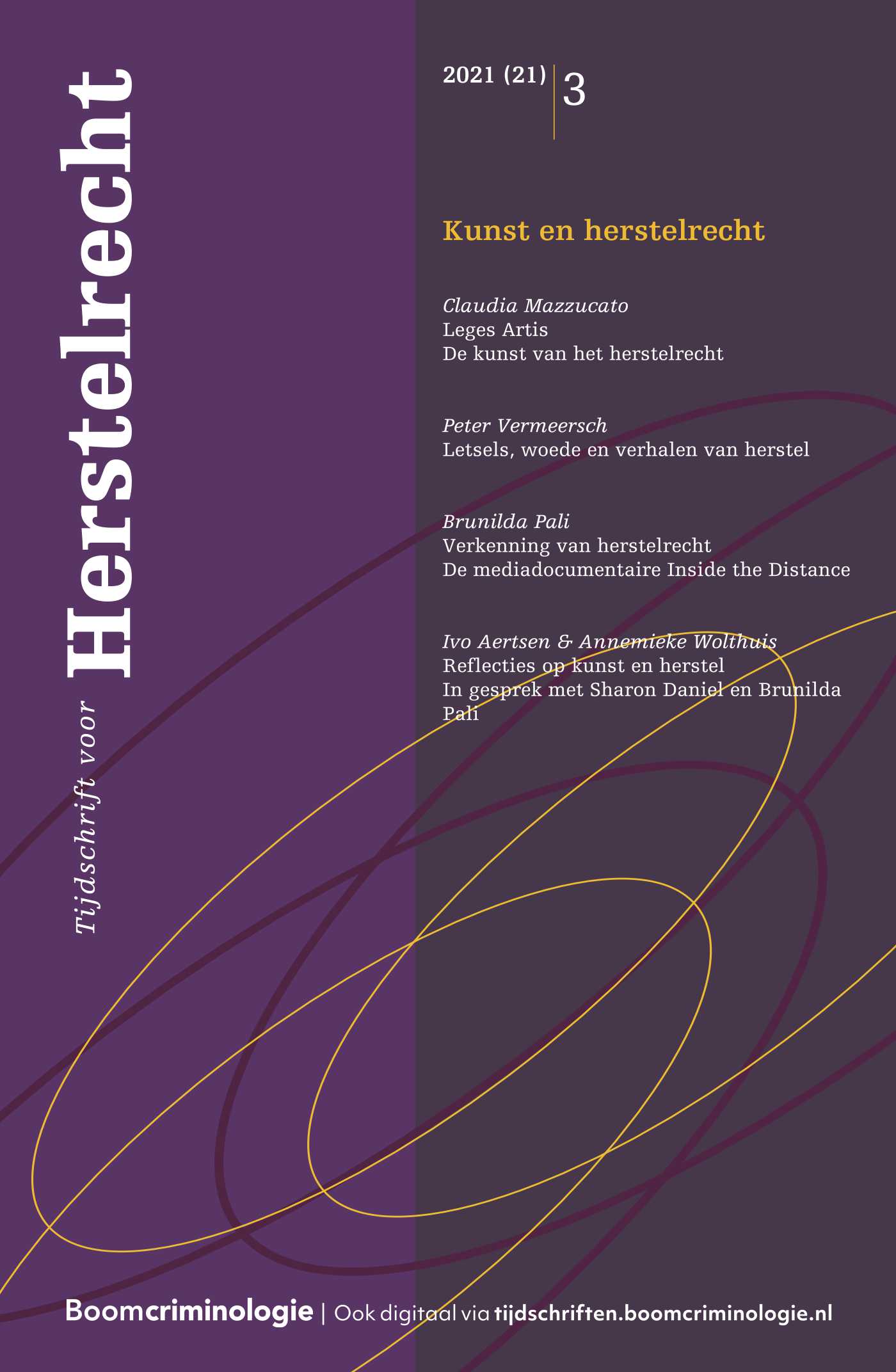|
The author first describes the deontological axioma for the role of the defense counsel in the domain of criminal procedure. Since here the most serious charges are brought against a suspect, who may have all his life-perspectives to lose by severe punishments, the duty of the legal counsel is to be as one-sided in the defense of his clients views and interests as possible and as allowed by professional ethics. He is the guardian of the legitimate interests of the suspect in the context of a legal battle in or out of court about the legal truth of what is said to have happened. In view of the ideals of restorative justice (illustrated by references to Nils Christies Conflicts as property) a new set of rules and customs should be developed that can function as a framework of ‘restorative procedural law’. In the context of restorative justice legal counsel of both the suspect and the victim should be expected and able to function much more as ‘restorative coaches’, seeking co-operation and deliberation between all stakeholders. But, should clients – suspects and victims alike – decide against such an approach and want ‘their day in court’ this should also be possible and be realised. The independent courts should always remain the ultimate refuge for those seeking justice. |


Tijdschrift voor Herstelrecht
Meer op het gebied van Mediation en herstelrecht
Over dit tijdschriftMeld u zich hier aan voor de attendering op dit tijdschrift zodat u direct een mail ontvangt als er een nieuw digitaal nummer is verschenen en u de artikelen online kunt lezen.
| Column |
Mediation in witteboordenland |
| Auteurs | Dian Brouwer |
| Auteursinformatie |
| Redactioneel |
Herstelrecht en advocatuur: een waar avontuur |
| Auteurs | John Blad en Jacques Claessen |
| Auteursinformatie |
| Artikel |
Advocatuur in strafrecht en herstelrechtEen verkenning van de verschillen |
| Trefwoorden | raadsman, herstelprocesrecht, Strafprocesrecht, advocaten, mediation |
| Auteurs | John Blad |
| SamenvattingAuteursinformatie |
| Artikel |
Herstelbemiddeling voor minderjarigen in Vlaanderen: specifieke rol van de advocaat |
| Trefwoorden | Herstelbemiddeling, Minderjarigen, Vlaanderen, advocaat |
| Auteurs | Mathias Claeys |
| SamenvattingAuteursinformatie |
|
In Antwerp there is a strong involvement of lawyers in all mediations for minor suspects following. All minor suspects are automatically assigned a lawyer. In this article the author describes the current mediation procedure for minor suspects. Furthermore he gives some personal comments from his perspective as a mediator. |
| Artikel |
Jeugdadvocaten en herstelbemiddeling |
| Trefwoorden | Jeugdadvocaat, Herstelbemiddeling, Minderjarige, kinderen |
| Auteurs | Eric Van der Mussele |
| SamenvattingAuteursinformatie |
|
In this article the author gives insight in the tasks of a lawyer in mediation for minors. In the first part of his contribution he describes the legal framework, giving an overview of all relevant existing national and international legislation on children’s rights. Subsequently he describes the different tasks a lawyer has to attend in all stages of the mediation. |
| Artikel |
Advocaten bij politieverhoor en doorverwijzen naar mediation: twee vliegen in één klap |
| Trefwoorden | Politieverhoor, Mediation, Advocaat, ZSM |
| Auteurs | Jaap Spigt |
| SamenvattingAuteursinformatie |
|
In his contribution the author points out that the right to legal assistance during police interrogations offers a wonderful opportunity to pay attention to the possibility of mediation and to ensure that the interrogating police officer abides Article 51h of the Dutch Code of Criminal Procedure. |
| Artikel |
Herstelrecht en de strafrechtadvocaat 2.0 |
| Trefwoorden | Strafrecht, Strafrechtadvocaat, Strafpraktijk, Vervolging, herstelprocesrecht |
| Auteurs | Alrik de Haas |
| SamenvattingAuteursinformatie |
|
In the Netherlands more and more criminal lawyers recognize the importance of Restorative Justice. The author illustrates this on the basis of several criminal cases in different phases of the criminal process. Under conditions Restorative Justice is of importance for all parties, including the suspect/offender. Criminal lawyers have to find the courage to overcome cold feet, so that they can fully meet the needs and interests of their clients. |
| Artikel |
De strafrechtadvocaat en het herstelrecht |
| Trefwoorden | Strafrechtadvocaat, Mediator, Ervaringen, Verantwoordelijkheid, Coach |
| Auteurs | Klaartje Freeke |
| SamenvattingAuteursinformatie |
|
Suspects are often much better off when they take responsibility for the harm they caused. They will accept their punishment more easily when also their side of the story is told and listened to. Not only they themselves, also their victim can benefit from this. Even when there is under circumstances no place for mediation in the pre-trial stage, also in the trial-stage people could come closer to each other. The counsel for the defense can play a coaching role in this process, that is not so much guided by classical principles of criminal law but much more by the experiences of the ones involved. |
| Artikel |
Samenwerken in tegenspraakDe advocaat en de mediator in strafzaken |
| Trefwoorden | Advocaat, Strafzaak, Familiezaak, Mediation, Bemiddelen |
| Auteurs | Makiri Mual |
| SamenvattingAuteursinformatie |
|
The author illustrates the complexity of cases mediators are confronted with by using two exemplary cases. Sometimes legal issues deriving from family law, divorce law and criminal law all are disputed at the same time, frustrating and even blocking all parties including their legal counsels who are also part of the conflict-system. When a conflict-system becomes contaminated, often support systems are mobilised. If a mediator wants to play a role in sorting out the process – which is not his fundamental task – it is best to seek co-operation with the legal counsels. |
| Discussie |
Gandhi over misdaad, straf en advocatuur – een reflectie |
| Auteurs | Jacques Claessen |
| Auteursinformatie |
